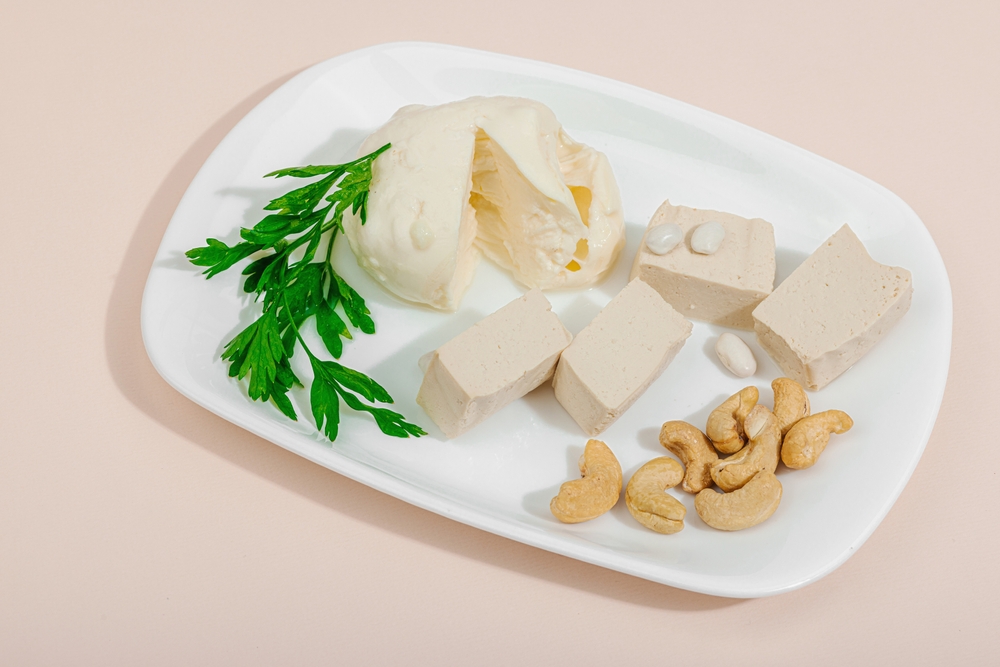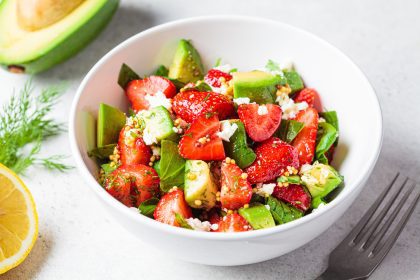Vegan cheese has emerged as a major player in the plant-based movement, reshaping grocery store aisles and restaurant menus. As more consumers shift toward plant-based diets for health, ethical, or environmental reasons, the demand for dairy-free cheese alternatives has skyrocketed. Once a niche product with limited appeal, vegan cheese has evolved into a sophisticated category with diverse flavors, textures, and uses.
Unlike traditional dairy cheese, which relies on animal milk, vegan cheese is crafted from plant-based ingredients designed to mimic the taste and texture of conventional cheese. With advancements in food technology, today’s offerings are far superior to the rubbery, artificial-tasting versions of the past. However, despite its growing popularity, questions remain about its nutritional value compared to dairy cheese.
What goes into vegan cheese
Vegan cheese is made using a variety of plant-based ingredients, each contributing specific characteristics that replicate dairy cheese. Some of the most common bases include:
- Nuts and seeds: Cashews, almonds, macadamia nuts, and sunflower seeds create creamy textures and natural flavors
- Legumes and starches: Chickpeas, lentils, tapioca starch, and potatoes add structure and stretchability
- Oils and fats: Coconut oil, palm oil, and shea butter provide richness and meltability
- Fermentation and cultures: Some varieties undergo fermentation to develop complex flavors, similar to aged dairy cheese
The type of vegan cheese determines its nutritional profile. Nut-based varieties tend to be higher in healthy fats and moderate in protein, while oil-based options focus more on texture and taste rather than nutrition. Some brands fortify their products with vitamins and minerals like calcium and B12 to address common nutrient deficiencies in plant-based diets.
Is vegan cheese healthier than dairy cheese?
From a nutritional standpoint, vegan cheese varies widely in comparison to its dairy counterpart. Traditional cheese is naturally rich in protein, calcium, and essential vitamins, while vegan alternatives often require fortification to match those benefits.
Protein content: Dairy cheese is a reliable source of high-quality protein, whereas many vegan cheeses lack significant protein unless they contain legumes or added pea protein.
Calcium levels: While dairy cheese is a well-known calcium source, vegan cheese does not always provide sufficient amounts unless fortified. Consumers relying on plant-based cheese should ensure they get calcium from other dietary sources.
Fat composition: Many vegan cheeses contain saturated fats from coconut or palm oil, which can impact heart health if consumed in excess. On the other hand, nut-based versions offer healthier unsaturated fats.
Additives and processing: Some mass-produced vegan cheeses rely on starches, gums, and artificial flavors to enhance texture and taste, leading to a highly processed final product. Reading ingredient labels can help consumers make informed choices.
Ultimately, whether vegan cheese is healthier than dairy cheese depends on the specific brand and ingredients. While some varieties offer clean, nutritious alternatives, others resemble ultra-processed foods with little nutritional value.
Environmental impact of vegan cheese
One of the strongest arguments in favor of vegan cheese is its lower environmental footprint compared to traditional dairy production. Raising cows for milk requires vast amounts of land, water, and feed, while also contributing to greenhouse gas emissions. Plant-based cheese production, on the other hand, generally consumes fewer resources and produces less carbon dioxide.
However, not all vegan cheese is equally sustainable. Nut-based varieties, especially those made from almonds, can have high water consumption, while coconut and palm oil production raise concerns about deforestation. Consumers looking to minimize their environmental impact should consider the sourcing of ingredients and choose brands that prioritize sustainability.
How does vegan cheese perform in cooking?
Taste and texture have long been challenges for vegan cheese, but recent advancements have improved its performance in various culinary applications. Different types of plant-based cheese work best in specific dishes:
- Sliced and shredded cheese: Ideal for sandwiches, wraps, and salads, though meltability varies by brand
- Soft and spreadable cheese: Works well as a dip, on crackers, or as a topping for toast
- Aged and fermented cheese: Offers complex flavors that appeal to those seeking artisanal alternatives
Despite these improvements, not all vegan cheeses melt, stretch, or brown like dairy cheese, which can be a deal-breaker for those who enjoy gooey, melty textures. The use of modified starches and added fats helps some brands achieve better meltability, but the results still differ from traditional cheese.
The future of vegan cheese
The plant-based cheese industry is evolving rapidly, driven by consumer demand and scientific innovation. Ongoing research in fermentation, microbial cultures, and alternative proteins promises to bring even more realistic and nutritious options to the market. Some startups are even experimenting with lab-grown dairy proteins, which could create vegan cheese that is virtually identical to traditional cheese at a molecular level.
As the industry expands, more brands are focusing on clean-label products with fewer additives and greater nutritional benefits. The future of vegan cheese looks promising, offering better choices for those seeking plant-based alternatives without sacrificing flavor or texture.
For consumers, the key is to explore different options, read labels carefully, and consider nutritional needs when making the switch. While vegan cheese may not completely replace dairy cheese for everyone, it is carving out a solid place in the evolving world of plant-based foods.
















